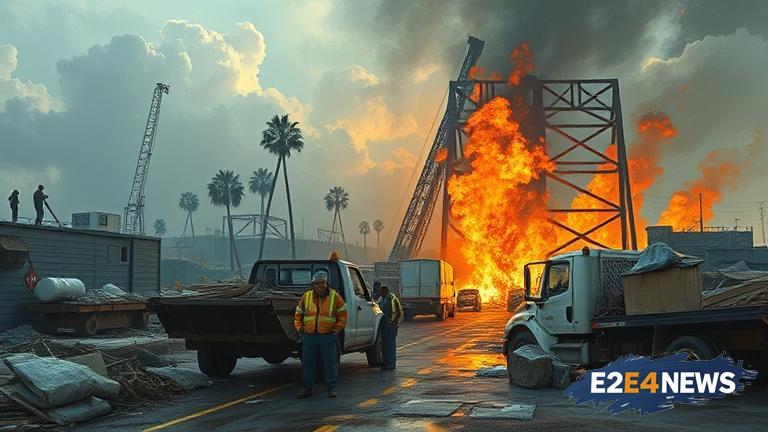The Department of Homeland Security (DHS) has recently denied a policy that allegedly ties disaster relief to Israel, sparking controversy and debate. The policy, which was reportedly implemented by the Federal Emergency Management Agency (FEMA), was said to prioritize disaster relief efforts based on a state’s support for Israel. However, DHS has vehemently denied the existence of such a policy, stating that disaster relief efforts are based solely on need and not on any political considerations. The controversy began when a report surfaced claiming that FEMA had implemented a policy that would prioritize disaster relief efforts in states that have passed anti-BDS (Boycott, Divestment, and Sanctions) legislation. The report alleged that states that have not passed such legislation would be penalized and receive less disaster relief funding. The BDS movement is a global campaign that seeks to economically pressure Israel into ending its occupation of Palestinian territories. Pro-Israel groups have been pushing for states to pass anti-BDS legislation, which would prohibit state agencies from investing in or contracting with companies that boycott Israel. However, critics of the legislation argue that it infringes on free speech and unfairly targets Palestinian activists. The denial of the policy by DHS has done little to quell the controversy, with many still questioning the motivations behind the alleged policy. Some have pointed out that the policy, if it existed, would be a clear example of the Israeli lobby’s influence on US policy. Others have argued that the policy would be a form of political blackmail, where states are forced to support Israel in order to receive disaster relief funding. The controversy has sparked a wider debate about the role of politics in disaster relief efforts and the influence of special interest groups on US policy. Many are calling for greater transparency and accountability in disaster relief efforts, to ensure that funding is allocated based on need and not on political considerations. The incident has also highlighted the complex and often contentious relationship between the US and Israel. The US has long been a strong supporter of Israel, providing significant financial and military aid to the country. However, in recent years, there has been growing criticism of Israel’s treatment of Palestinians and its occupation of Palestinian territories. The controversy over the alleged policy has sparked a wider debate about the US’s role in the Israeli-Palestinian conflict and the influence of the Israeli lobby on US policy. As the debate continues, many are calling for a more nuanced and balanced approach to the conflict, one that takes into account the rights and needs of both Israelis and Palestinians. The incident has also raised questions about the role of FEMA and its priorities in disaster relief efforts. FEMA has faced criticism in the past for its response to natural disasters, with many arguing that the agency is often slow to respond and inadequate in its relief efforts. The controversy over the alleged policy has sparked a wider debate about the need for reform and greater accountability within FEMA. In conclusion, the controversy over the alleged policy tying disaster relief to Israel has sparked a wider debate about the role of politics in disaster relief efforts and the influence of special interest groups on US policy. The incident has highlighted the complex and often contentious relationship between the US and Israel and has raised questions about the need for greater transparency and accountability in disaster relief efforts. As the debate continues, many are calling for a more nuanced and balanced approach to the conflict, one that takes into account the rights and needs of both Israelis and Palestinians.
